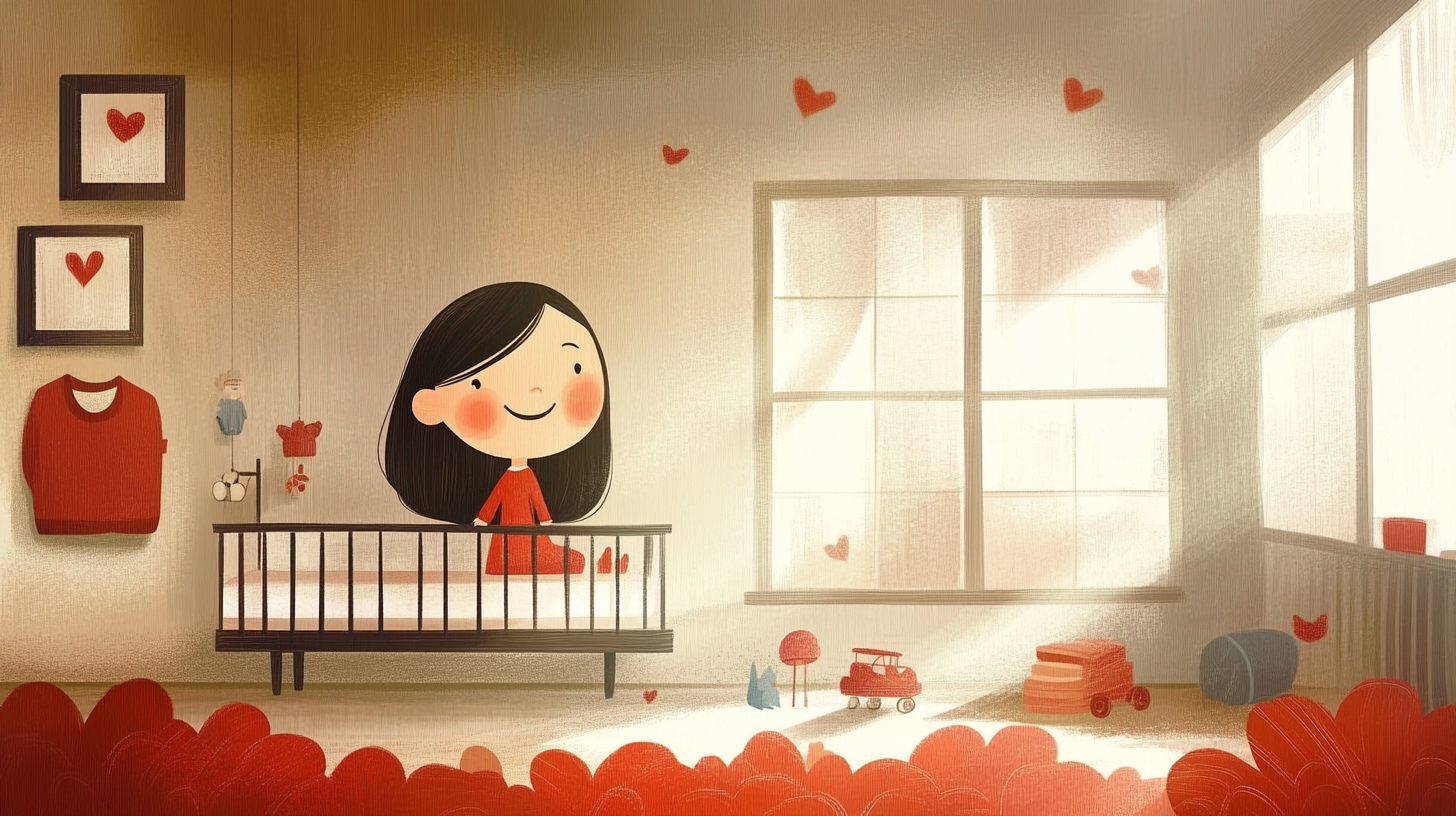“Baby” is a word that means a small child or something very small, and it can also mean to treat someone too gently or to spoil them.
以下は英単語 “baby” に関するストーリー型学習コンテンツです。まずは大枠の意味を理解して最後の文章で確認しましょう。
主な意味(main meaning)
| 品詞 | 発音記号 | 意味 | 英語例文 |
|---|---|---|---|
| 名詞 (noun) | /ˈbeɪ.bi/ | 赤ちゃん、小さい子ども | The baby is sleeping in the crib. |
| 形容詞 (adjective) | /ˈbeɪ.bi/ | 赤ちゃん用の、非常に小さい | She bought baby clothes for her niece. |
| 動詞 (verb, informal) | /ˈbeɪ.bi/ | 甘やかす、大事にしすぎる | Don’t baby him—he can do it himself. |
語源(etymology)
「baby」は中英語の「babe」から派生し、幼児の話し言葉のような「ba」や「ma」の音をもとにしています。核心イメージは「幼さ・小ささ・保護対象」。
類義語(synonyms)
| 類義語 | 英語例文 |
|---|---|
| infant | The infant was only three months old. |
| newborn | The newborn needs to be fed every two hours. |
| toddler | The toddler took his first steps today. |
| child | Every child needs love and care. |
| darling | She held her darling close to her heart. |
反義語(antonyms)
| 反義語 | 英語例文 |
|---|---|
| adult | Adults are responsible for their own decisions. |
| grown-up | She acts like a grown-up even though she’s only twelve. |
コロケーション(collocations)
| コロケーション | 英語例文 |
|---|---|
| baby food | He ate a jar of baby food for lunch. |
| baby clothes | We bought some baby clothes as a gift. |
| baby steps | She’s making baby steps toward recovery. |
| baby shower | They held a baby shower for the new parents. |
| baby bottle | The baby cried until he got his baby bottle. |
2項表現(binomials)
| 表現 | 英語例文 |
|---|---|
| baby and toddler | This store sells baby and toddler items. |
| mom and baby | The room was full of moms and babies. |
英語ストーリー(english story)
Title: The New Baby at the Office
Last month, my boss, Mr. Tanaka, became a father. He was so happy that he brought a photo of his newborn baby to the office. Everyone gathered around to see it. “She’s so cute!” said my coworker, Mika. Mr. Tanaka smiled proudly. “Her name is Hana,” he said.
Since then, we’ve seen many changes in Mr. Tanaka. He started using words like “baby steps” when talking about new projects. He even organized a baby shower at the office. We brought baby clothes and toys as gifts.
One day, he said, “Don’t baby the new intern. Let him learn by making mistakes.” We all laughed. It was funny to hear “baby” used as a verb, but we knew what he meant.
I learned some new words thanks to Mr. Tanaka’s baby. I didn’t know “infant” and “newborn” were different. An infant is usually up to one year old, while a newborn is just a few weeks old. I also learned that “toddler” means a child who is starting to walk.
Having a baby really changes a person. Mr. Tanaka became more understanding and patient. Now he often says, “Every child needs love and care,” and he tries to treat everyone kindly. I think his daughter has already taught him a lot.
和訳
タイトル:オフィスにやってきた赤ちゃんの話
先月、私の上司である田中さんに赤ちゃんが生まれました。彼はとても喜んでいて、新生児の写真をオフィスに持ってきました。みんなでその写真を見に集まりました。「すごくかわいい!」と同僚の美香が言いました。田中さんは誇らしげに微笑み、「名前は花です」と言いました。
それ以来、田中さんにはいくつかの変化が見られました。彼は新しいプロジェクトについて話すとき、「ベイビーステップ(少しずつ進むこと)」という言葉を使うようになりました。さらには、オフィスでベビーシャワーを企画し、私たちは赤ちゃん用の服やおもちゃをプレゼントしました。
ある日彼はこう言いました。「新しいインターンを甘やかさないで。失敗から学ばせよう。」”baby” が動詞として使われたのが面白くて、みんなで笑いました。
田中さんの赤ちゃんのおかげで、私はいくつか新しい単語を覚えました。「infant(乳児)」と「newborn(新生児)」の違いも知りませんでした。infantは通常1歳までの子を指し、newbornは生まれて間もない赤ちゃんです。また、”toddler” は歩き始めの子どもを意味することも学びました。
赤ちゃんができると人は本当に変わるのですね。田中さんはもっと理解深く、忍耐強くなりました。今ではよく「すべての子どもには愛とケアが必要だ」と言い、皆に優しく接するようになりました。娘さんが彼にすでにたくさんのことを教えているのだと思います。



コメント